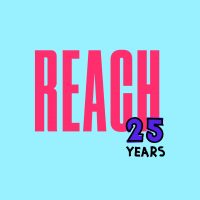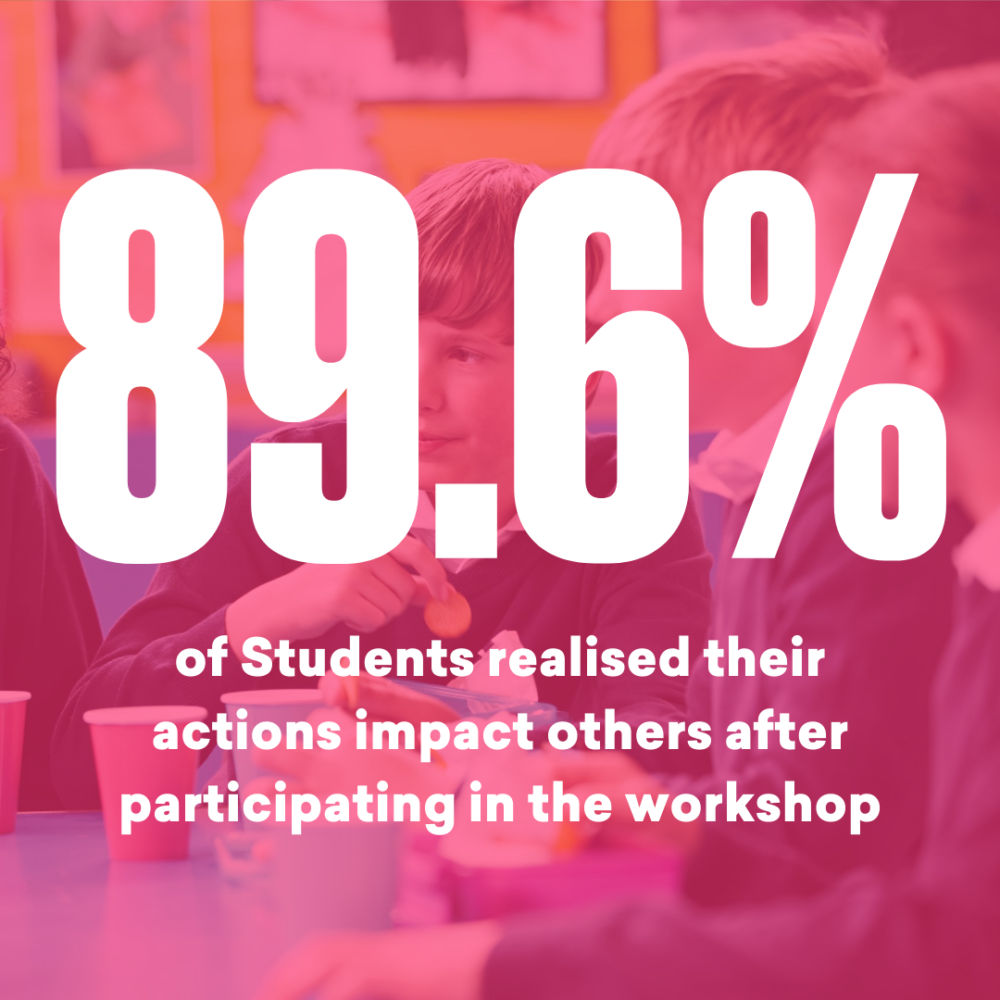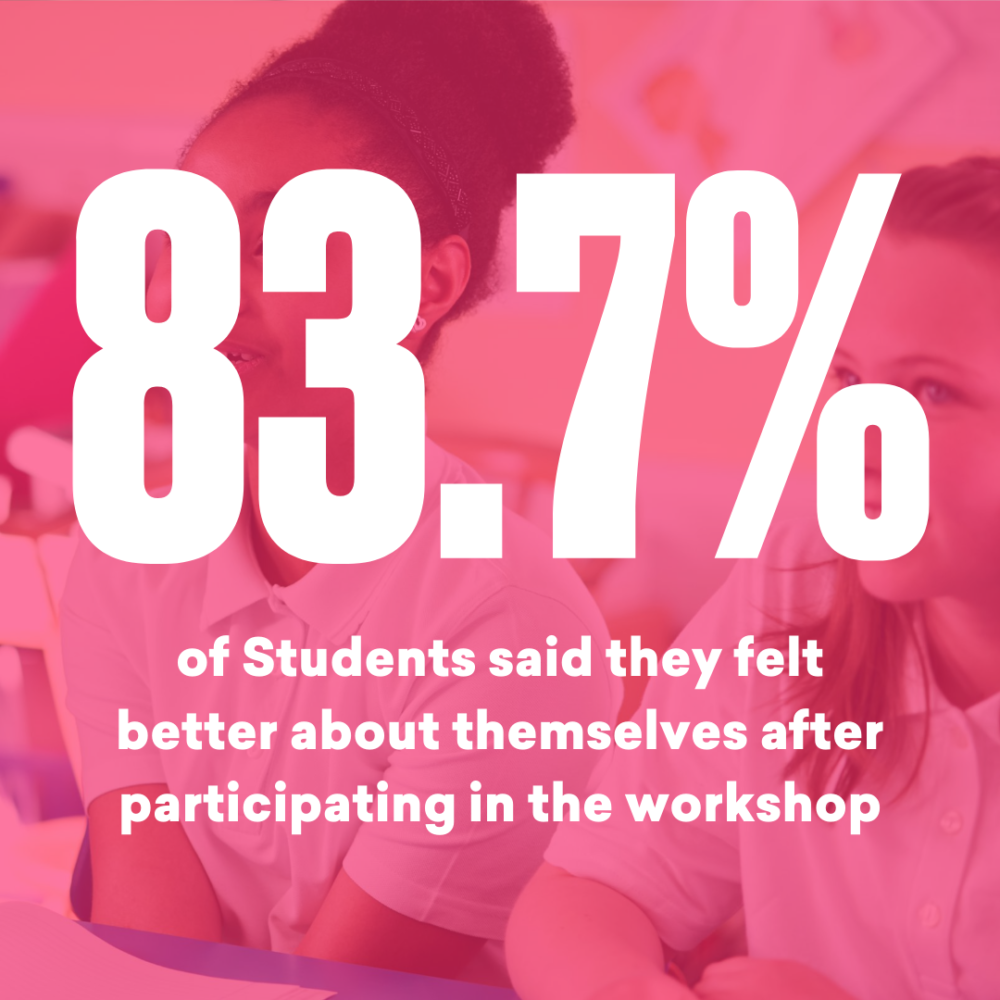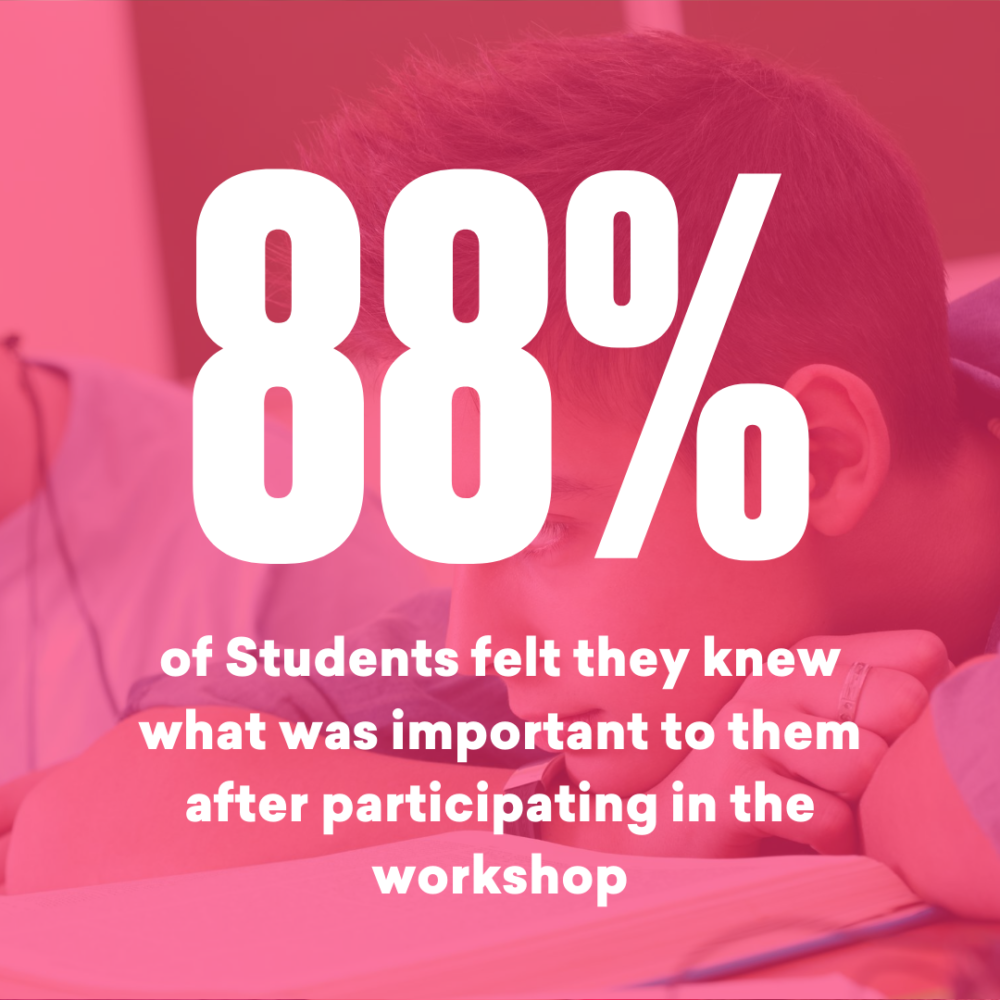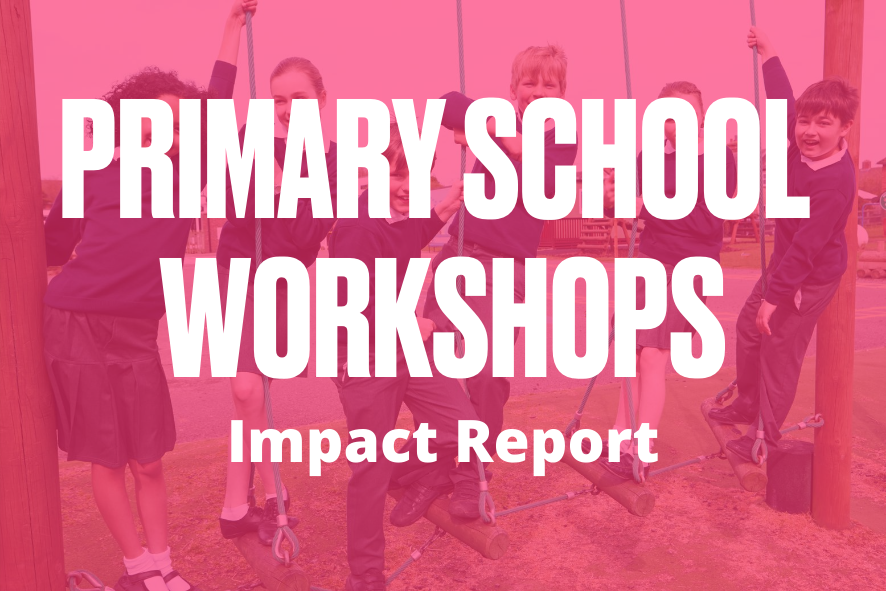
Primary School Workshops: An Impact Report

Reach’s Primary School Workshops are available to students in Grade 5 and Grade 6 through a 4 part series of 90 minute workshops. They incorporate fun and creative activities that encourage students to explore themes such as bullying, the importance of empathy, understanding and appreciating difference, and the impact of our beliefs on our behaviour.
We encourage schools to book the suggested sequence of workshops where possible, as each workshop is designed to build on the experiences and skills developed from previous workshops.
A look into the workshops


Our Connection workshop is the first in the series of 4 workshops. For schools and young people new to Reach workshops, it is strongly recommended that you begin with this workshop as it provides a strong foundation of the Reach workshop methodology and workshop experience.
This workshop aims to create a positive peer dynamic in the group through creating a safe space for expression. We explore the concept of comfort zones – how they affect us and how we may impact someone else’s comfort zone. In exploring our differences and what’s great about them, we build empathy and acceptance of each other.

Our Teamwork workshop aims to understand limiting behaviours and how to develop strategies for working better as a team. We explore the impact of one’s behaviour in the classroom and the choices available to us to engage in positive behaviours. Participants get an opportunity to work together and pivot their behaviour so everyone experiences a positive outcome.

Our Empathy workshop aims to develop confidence and empathy through sharing personal experiences. Students have the opportunity to safely explore their emotions and experiences, and learn from each other. It universalises challenges and experiences that participants may have felt alone in experiencing, while helping students get to know each other on a deeper level.
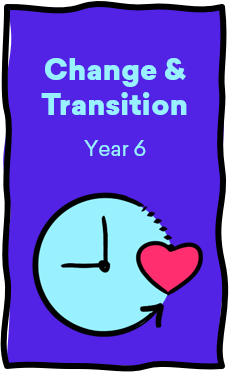
Our Change and Transition workshop is targeted to Year 6 as they prepare for the transition to secondary school. The workshop focuses on the choices available to us and how to make decisions drawing on who we are and what’s important to us. It’s also an opportunity for students to reflect on their primary school journey and celebrate their efforts.
Outcomes
- Increased confidence
- Increased ability to express yourself
- Increased sense of self and awareness of personal values
- Awareness of behavioural impact
- Stronger cohesion and acceptance of peers
- Ability to make choices that have a positive impact
Why we run Primary School Workshops
During this early stage of adolescence, young people in their final years of primary school are developing their social skills and entering puberty. Behaviours formed during this stage can carry into later stages of adolescence and adulthood. Our workshops are all preventative and early-intervention focussed and designed to support young people during this critical transition in their lives.
Primary School students are facing numerous challenges like bullying, peer pressure, seeking help, accepting and understanding differences, and dealing with change. These workshops provide students with a real time experience of unpacking these issues.

In 2019 we ran 171 Primary School Workshops, impacting 4,550 young people. The majority of these workshops were delivered in Victoria, thanks to our program sponsor PFD Food Services.
What do Young People say about the workshops?
Over term 1 of 2020, we asked students who were participating in our primary school workshops to tell us about what was important to them. This was to get further insight into how we can support them and ensure our workshops are relevant and meeting their needs.
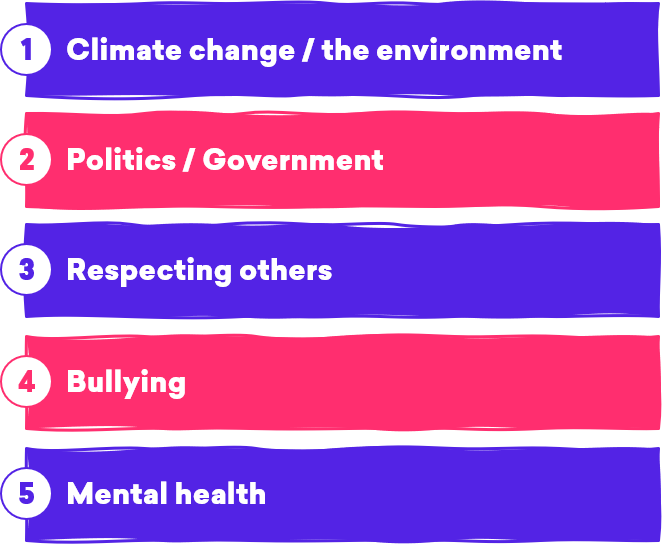
As you can see, young people at this age are highly perceptive. They were asked these questions following the aftermath of the black summer bushfires and the beginning of the pandemic. These workshops provide students with a safe space to make sense of what’s going on in the world and help normalise some of the emotions that at times you may feel alone in experiencing.

We also asked participants to tell us about how hopeful they felt about their future. The results correlate to the findings from Mission Australia’s 2019 Youth Survey where the majority of young people responded positively.
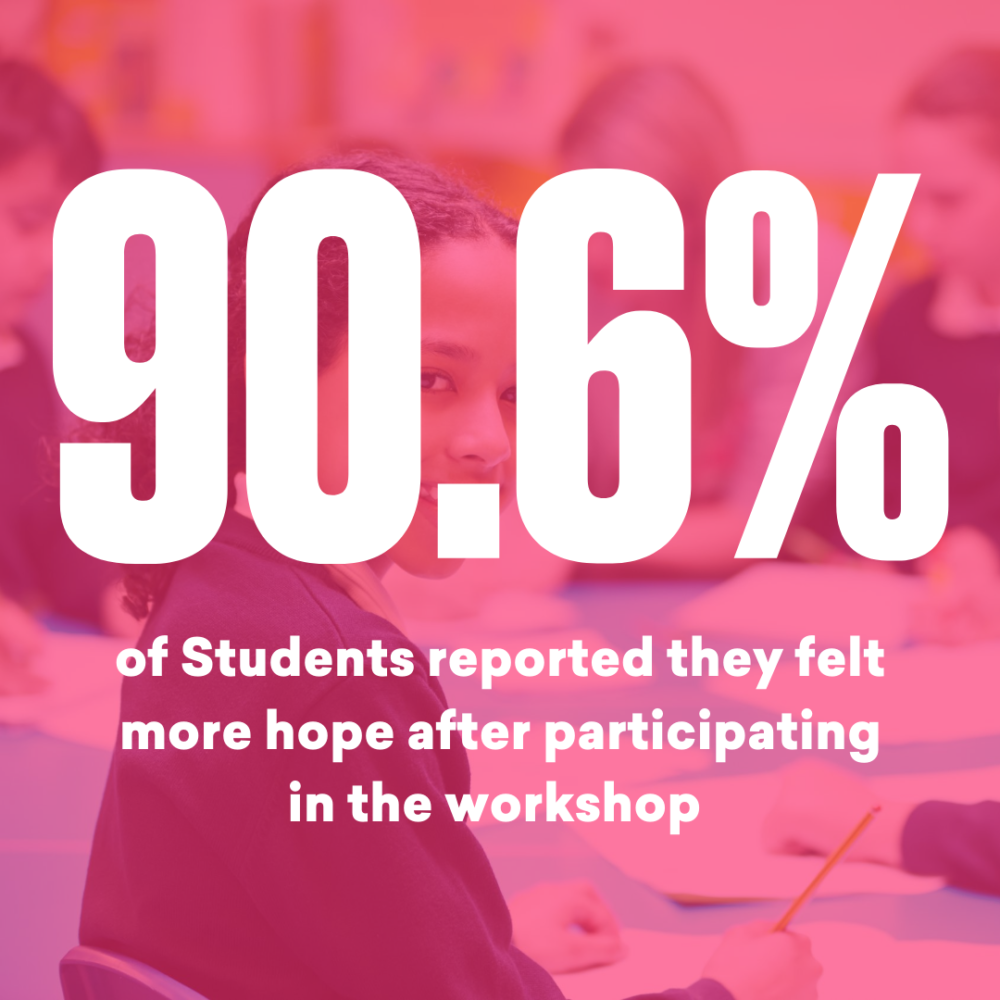
However we are particularly pleased to report that 90.6% if students report they felt more hope after participating in one of the 4 Primary School workshops. This is particularly important given the stage in their development and point of transition in their overall life. It speaks to the importance of young people having spaces to express themselves and have honest conversations to make sense of the world they are living in.
What do Teachers say about the workshops?
“Giving students a safe space to be vulnerable, especially students who might not always show vulnerability.”
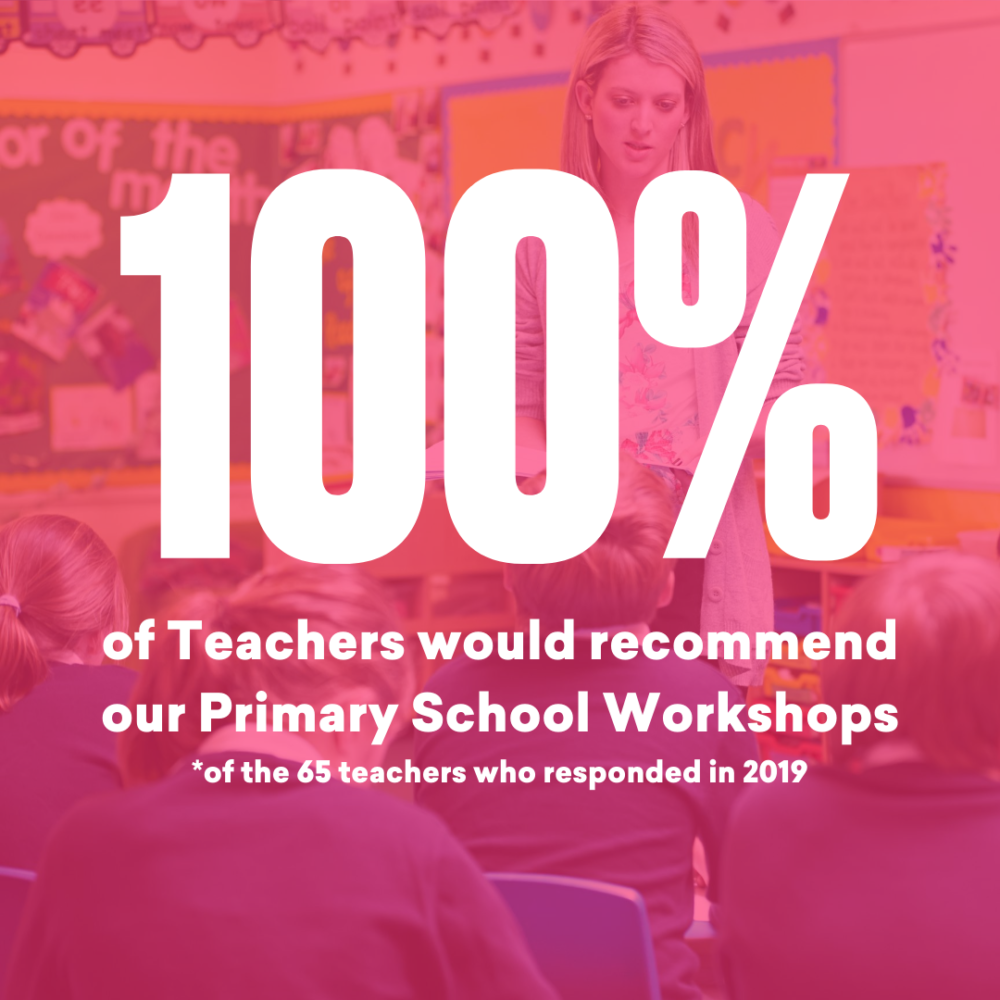
As with all our programs available to schools, Teachers and Wellbeing Professionals play a critical role. Our team work closely with schools to understand the wellbeing needs of students prior to a workshop, and there’s a similar debrief process to ensure all students requiring follow up are accounted for. These workshops also give schools an insight into what might be going on for their students that they may not be aware of.
When we asked what is valuable about these workshops, some teachers responded:
“The way the facilitators were able to gently encourage and lead the students to an understanding without simply telling.”


The most memorable session I had the privilege of delivering to a year 6 cohort was our ‘Connection’ workshop. One activity in particular where students share what makes them different. During this activity a young girl stated she feels different because she has a parent who is very sick and this is really hard on her and her family.
While no other student in this classroom could relate to her exact circumstances, we were able to open up a conversation about similar feelings that some of us could relate to, such as loss, uncertainty, confusion, worry, sadness. While her peers didn’t completely understand what that might feel like, they understood something of her sadness, something of her uncertainty, something of her worry and were able to offer help and support in the best way they knew how, being from their own experiences of feeling something similar.

Starting important conversations early with young people is critical to equipping them with the skills to overcome challenges they may experience as a teenager. Research demonstrates that almost half of mental health conditions are experienced by the age of 14. Which is why it’s so important to build self-awareness and empathy in students in years 5 and 6.

References
- Carlisle E., Fildes, J., Hall, S., Perrens, B., Perdriau, A., and Plummer, J. 2019, Youth Survey Report 2019, Sydney, NSW: Mission Australia
- Kessler, RD et al. (2005). Lifetime prevalence and age-of-onset distributions of DSM-IV disorders in the National Comorbidity Survey Replication. Archives of General Psychiatry, 62: p. 593-602.
- Mrazek & Haggerty (1994) p. 224, which was adapted from Kellam SG, Branch JD, Agrawal KC, Ensminger ME 1975, Mental Health and Going to School, University of Chicago Press, Chicago.
